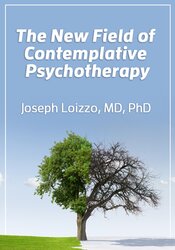

In today’s challenging environment—when racial and sexual violence, rising inequity, and reactivity are erupting everywhere—our society seems to be collectively facing traumas we therapists have long been treating privately. These traumas not only trigger our clients, but also reveal an insidious mental health crisis that challenges us as clinicians. This workshop traces that crisis to the pathological narcissism embedded in modern culture, and the instincts of self-enclosure wired into our brains. It will introduce you to the emerging field of contemplative psychotherapy, which integrates social neuroscience with timeless contemplative skills to enhance social engagement while accelerating healing and transformation.
| File type | File name | Number of pages | |
|---|---|---|---|
| Manual - The New Field of Contemplative Psychotherapy (13.2 MB) | 54 Pages | Available after Purchase |

Joseph (Joe) Loizzo, MD, PhD, is a Harvard-trained psychiatrist and Columbia-trained Buddhist scholar with over forty years’ experience studying the beneficial effects of contemplative practices on healing, learning and development. He is Assistant Professor of Clinical Psychiatry in Integrative Medicine at Weill Cornell Medical College, where he researches and teaches contemplative self-healing and optimal health. He has taught the philosophy of science and religion, the scientific study of contemplative states, and the Indo-Tibetan mind and health sciences at Columbia University, where he is Adjunct Assistant Professor at the Columbia Center for Buddhist Studies.
Speaker Disclosures:
Financial: Dr. Joseph Loizzo is the director of the Nalanda Institute for Contemplative Science. He has employment relationships with the Weill Medical College of Cornell University and the Columbia University Graduate School of Arts and Sciences. Dr. Loizzo receives royalties as a published author, and he receives a speaking honorarium and recording royalties from PESI, Inc. He has no relevant financial relationships with ineligible organizations.
Non-financial: Dr. Joseph Loizzo serves on the advisor board for Tibet House New York and is the member of the boards for the International Tibetan Medical Association and the New York University Holistic Nursing Program. He is a member of the Association for the Advancement of Philosophy & Psychiatry and the American Psychiatric Association.
Discuss how each brain level has networks for self-enclosure versus social engagement and its implications for clinician treatment.
Discover how self-enclosed networks fuel mental illness, while socially engaged networks support health and development.
Explain how mindfulness shifts neocortical absence to presence, compassion shifts limbic reactivity to resonance, and embodied methods shift brainstem stress reflexes to social resilience.
Please wait ...